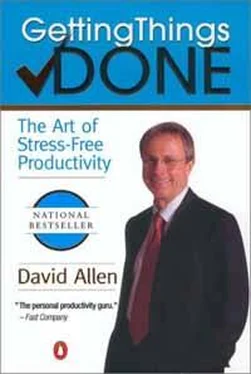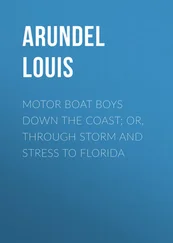Life is denied by lack of attention, whether it be to cleaning windows or trying to write a masterpiece..
— Nadia Boulanger
Your ability to generate power is directly proportional to your ability to relax.
It's a condition of working, doing, and being in which the mind is clear and constructive things are happening. It's a state that is accessible by everyone, and one that is increasingly needed to deal effectively with the complexity of life in the twenty-first century. More and more it will be a required condition for high-performance professionals who wish to maintain balance and a consistent positive output in their work. World-class rower Craig Lambert has described how it feels in Mind Over Water (Houghton Miffin, 1998):
Rowers have a word for this frictionless state: swing. . . . Recall the pure joy of riding on a backyard swing: an easy cycle of motion, the momentum coming from the swing itself. The swing carries us; we do not force it. We pump our legs to drive our arc higher, but gravity does most of the work. We are not so much swinging as being swung. The boat swings you. The shell wants to move fast: Speed sings in its lines and nature. Our job is simply to work with the shell, to stop holding it back with our thrashing struggles to go faster. Trying too hard sabotages boat speed. Trying becomes striving and striving undoes itself Social climbers strive to be aristocrats but their efforts prove them no such thing. Aristocrats do not strive; they have already arrived. Swing is a state of arrival.
The "Mind Like Water" Simile
In karate there is an image that's used to define the position of perfect readiness: "mind like water." Imagine throwing a pebble into a still pond. How does the water respond? The answer is, totally appropriately to the force and mass of the input; then it returns to calm. It doesn't overreact or underreact.
If your mind is empty, it is always ready for anything; it is open to everything.
— Sbunryu Suzuki
The power in a karate punch comes from speed, not muscle; it comes from a focused "pop" at the end of the whip. That's why petite people can learn to break boards and bricks with their hands: it doesn't take calluses or brute strength, just the ability to generate a focused thrust with speed. But a tense muscle is a slow one. So the high levels of training in the martial arts teach and demand balance and relaxation as much as anything else. Clearing the mind and being flexible are key.
Anything that causes you to overreact or underreact can control you, and often does. Responding inappropriately to your e-mail, your staff, your projects, your unread magazines, your thoughts about what you need to do, your children, or your boss will lead to less effective results than you'd like. Most people give either more or less attention to things than they deserve, simply because they don't operate with a "mind like water."
Anything that causes you to overreact or underreact can control you, and often does.
Can You Get into Your "Productive State" When Required?
Think about the last time you felt highly productive. You probably had a sense of being in control; you were not stressed out; you were highly focused on what you were doing; time tended to disappear (lunchtime already?); and you felt you were making noticeable progress toward a meaningful outcome. Would you like to have more such experiences? And if you get seriously far out of that state—and start to feel out of control, stressed out, unfocused, bored, and stuck—do you have the ability to get yourself back into it? That's where the methodology of Getting Things Done will have the greatest impact on your life, by showing you how to get back to "mind like water," with all your resources and faculties functioning at a maximum level.
There is one thing we can do, and the happiest people are those who can do it to the limit of their ability. We can be completely present. We can be all here. We can . . . give all our attention to the opportunity before us.
- Mark
The Principle: Dealing Effectively with Internal Commitments
A basic truism I have discovered over twenty years of coaching and training is that most of the stress people experience comes from inappropriately managed commitments they make or accept. Even those who are not consciously "stressed out" will invariably experience greater relaxation, better focus, and increased productive energy when they learn more effectively to control the "open loops" of their lives.
You've probably made many more agreements with yourself than you realize, and every single one of them-big or little—is being tracked by a less-than-conscious part of you. These are the "incompletes," or "open loops," which I define as anything pulling at your attention that doesn't belong where it is, the way it is. Open loops can include everything from really big to-do items like "End world hunger" to the more modest "Hire new assistant" to the tiniest task such as "Replace electric pencil sharpener." It's likely that you also have more internal commitments currently in play than you're aware of. Consider how many things you feel even the smallest amount of responsibility to change, finish, handle, or do something about. You have a commitment, for instance, to deal in some way with every new communication landing in your e-mail, on your voice-mail, and in your in-basket. And surely there are numerous projects that you sense need to be defined in your areas of responsibility, as well as goals and directions to be clarified, a career to be managed, and life in general to be kept in balance. You have accepted some level of internal responsibility for everything in your life and work that represents an open loop of any sort.
Anything that does not belong where it is, the way it is, is an "open loop" pulling on your attention.
In order to deal effectively with all of that, you must first identify and collect all those things that are "ringing your bell" in some way, and then plan how to handle them. That may seem like a simple thing to do, but in practice most people don't know how to do it in a consistent way.
The Basic Requirements for Managing Commitments
Managing commitments well requires the implementation of some basic activities and behaviors:
• First of all, if it's on your mind, your mind isn't clear. Anything you consider unfinished in any way must be captured in a trusted system outside your mind, or what I call a collection bucket, that you know you'll come back to regularly and sort through.
• Second, you must clarify exactly what your commitment is and decide what you have to do, if anything, to make progress toward fulfilling it.
• Third, once you've decided on all the actions you need to take, you must keep reminders of them organized in a system you review regularly.
An Important Exercise to Test This Model
I suggest that you write down the project or situation that is most on your mind at this moment. What most "bugs" you, distracts you, or interests you, or in some other way consumes a large part of your conscious attention? It may be a project or problem that is really "in your face," something you are being pressed to handle, or a situation you feel you must deal with sooner rather than later.
Maybe you have a vacation trip coming up that you need to make some major last-minute decisions about. Or perhaps you just inherited six million dollars and you don't know what to do with the cash. Whatever.
Got it? Good. Now describe, in a single written sentence, your intended successful outcome for this problem or situation. In other words, what would need to happen for you to check this "project" off as "done"? It could be as simple as "Take the Hawaii vacation," "Handle situation with customer X," "Resolve college situation with Susan," "Clarify new divisional management structure," or "Implement new investment strategy." All clear? Great.
Читать дальше











